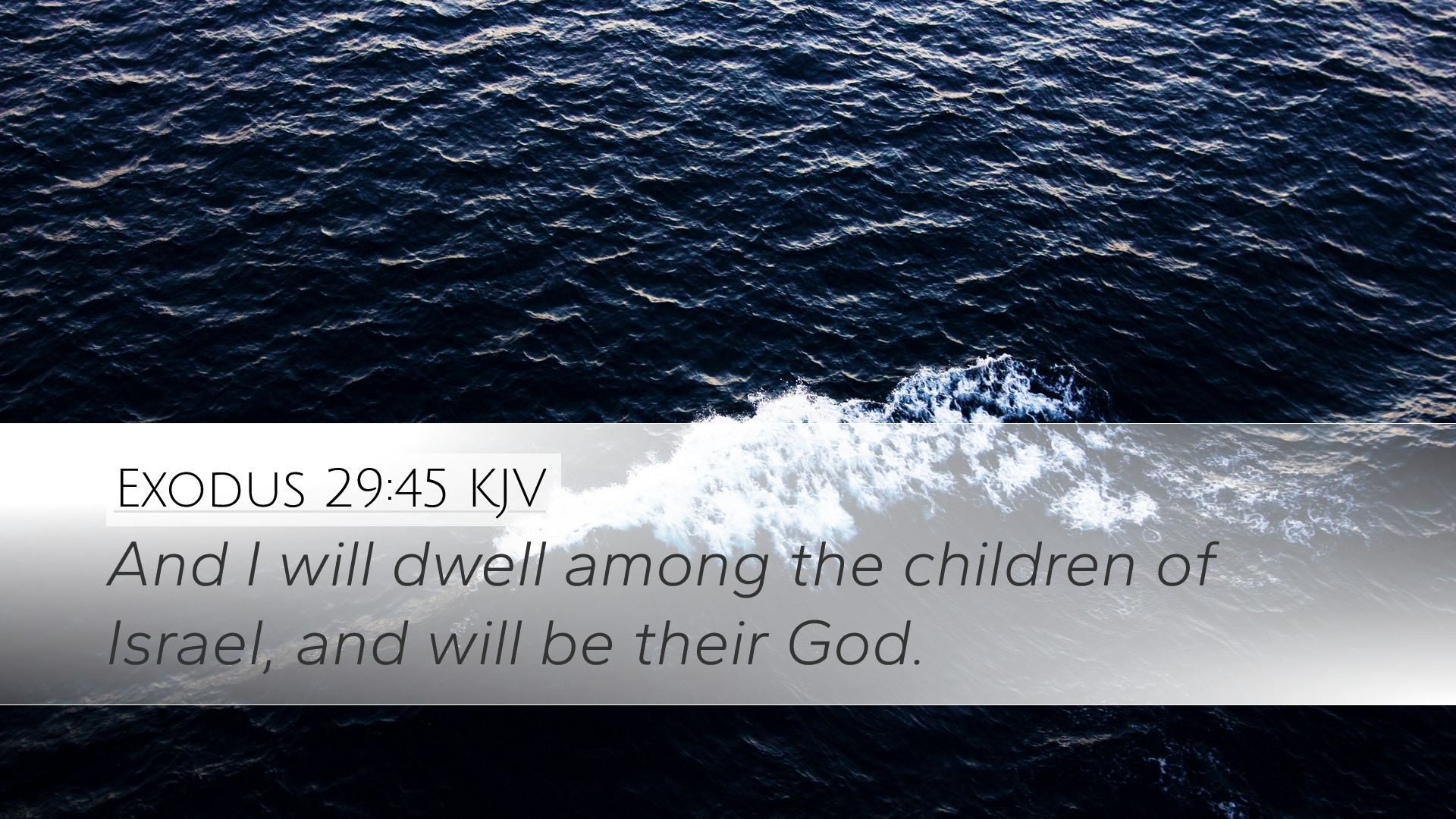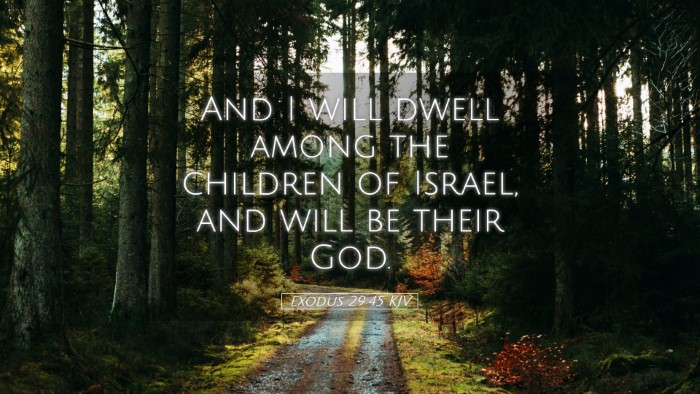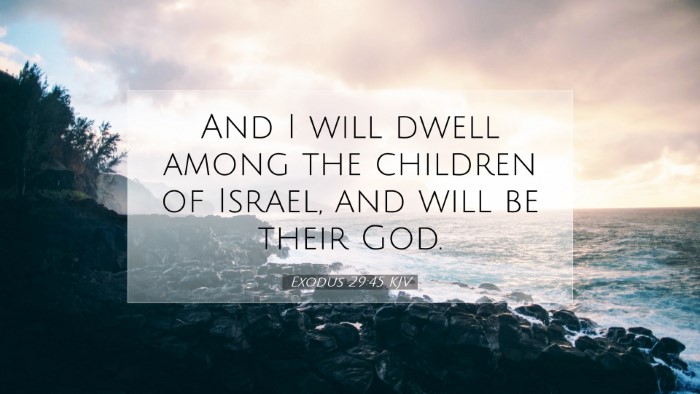Bible Commentary on Exodus 29:45
Verse: "And I will dwell among the children of Israel, and will be their God."
Introduction
This profound declaration from God marks a pivotal promise within the context of His covenant with Israel. The assurance of God's presence is foundational not only for the Israelites of the Old Testament but also for understanding God's relationship with His people throughout Scripture. This commentary synthesizes insights from noted biblical scholars, highlighting the significance of this verse for ministers, students, scholars, and theologians.
The Theological Significance of God's Dwelling
The phrase "I will dwell among the children of Israel" emphasizes God's desire for an intimate relationship with His people. As Matthew Henry notes, God's presence is not merely a passive observation but an active engagement in the lives of His chosen ones. This desire for proximity signifies a shift from a distant deity to a personal God who desires fellowship.
Albert Barnes elaborates, stating that God's dwelling among His people indicates His protective and guiding nature, providing them with comfort and assurance in their journey through life.
The Covenant Relationship
This verse crystallizes the essence of the covenant relationship that God established with Israel. The promise "I will be their God" affirms the mutual commitment between God and His people. As Adam Clarke explains, this declaration illustrates the security and dedication that characterize divine-human relationships. God is portrayed as a guardian and provider, emphasizing communal and individual spiritual well-being.
Contextual Insights from Exodus
Understanding the context of Exodus 29 enhances the interpretation of this promise. This chapter deals with the consecration of the priests and the establishment of the tabernacle, where God intends to meet His people. This setting is crucial as it demonstrates the integration of worship, sacrifice, and holiness in the relationship between God and Israel.
The Role of the Tabernacle
- Symbol of God's Presence: The tabernacle serves as a tangible representation of God's presence among the Israelites. As noted by Matthew Henry, the detailed instructions for its construction were not merely ritualistic but emphasized God's desire for a designated space among His people.
- Focus of Worship: Barnes points out that the system of sacrifices and priestly functions outlined in the surrounding verses signifies the importance of maintaining holiness and reverence in approaching God. The tabernacle provides a focal point for worship and sacrifice, integral for covenant compliance.
- Implication of Rituals: Clarke emphasizes that the rites of consecration signify the importance of preparation in divine fellowship, indicating that communion with God involves acknowledgment of His holiness.
Applications for Today
The implications of Exodus 29:45 extend beyond the immediate context of the Old Testament. For contemporary believers, this promise serves as a source of comfort and hope.
God's Immanence
Today, knowing that God desires to dwell among His people invites a deeper understanding of His immanent nature. As noted by Henry, the promise resonates with the New Testament revelation where Christ embodies God's presence (John 1:14). This theological continuity illuminates the ever-present nature of God in the life of believers.
The Call to Holiness
As God established a framework for holiness in the lives of the Israelites, so too does this call extend to believers today. Barnes reminds us that the call to be a “holy nation” is a reflection of God’s character and the necessity for believers to pursue a lifestyle that mirrors that devotion.
The Assurance of Divine Guidance
God’s promise to be their God implies His role as a guide and protector. Clarke asserts that this assurance is pivotal for believers navigating the complexities of life. Trusting in God's guidance enables believers to engage with confidence in their spiritual journeys, assured of His presence and leading.
Conclusion
Exodus 29:45 encapsulates a profound aspect of the relationship between God and His people, illustrating the importance of His presence, the nature of the covenant, and our call to holiness. By reflecting on the insights from renowned commentators such as Matthew Henry, Albert Barnes, and Adam Clarke, insights emerge that challenge and comfort pastors, students, and scholars. This verse invites us into a deeper commitment to understanding God's promise, encouraging believers to acknowledge His continual presence and guidance in their lives.


